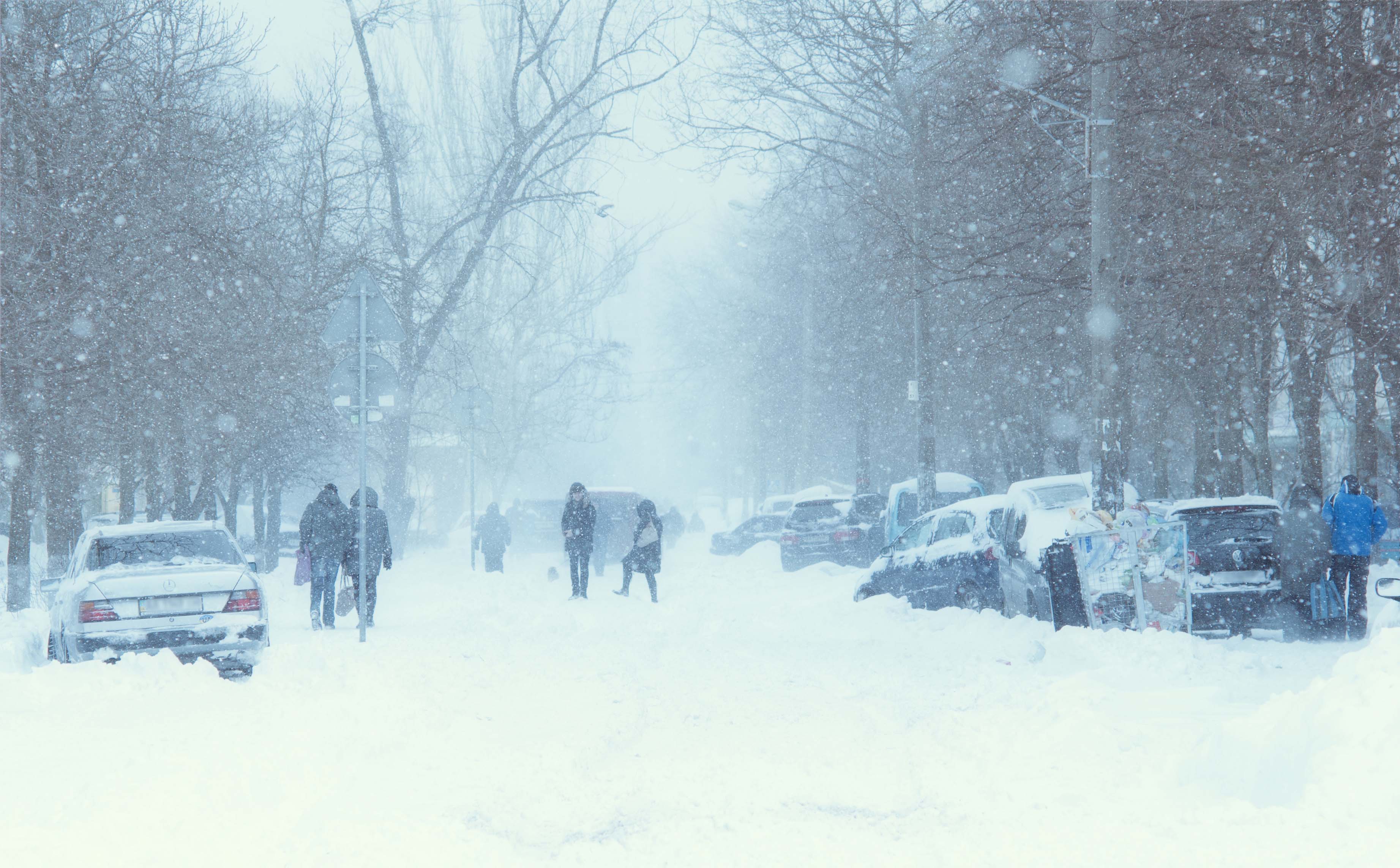
The day after the nation celebrated 247 years of independence, the New Jersey Appellate Division liberated retailers and commercial landowners from the duty to fastidiously shovel away snow amid a storm. Specifically, the two-judge panel affirmed the dismissal of a New Jersey woman’s lawsuit that sought to hold Costco Wholesale Corp. and its snow removal vendor liable for injuries she suffered after a slip and fall incident outside the store during an inclement winter weather event.
In Smith v. Costco, Plaintiff claimed she slipped and fell on snow and ice buildup outside the North Plainfield Costco on March 7, 2018. Weather records indicate a winter storm warning had been in effect starting at midnight, running through 8:30 p.m., with continuous snowfall throughout the day. The Court agreed with the Defendants that the storm was ongoing when Plaintiff arrived around 7 p.m. Though Costco remained open during the storm and had engaged a landscaper to clear its walkways throughout the day continuously, the Court found that a company’s duty to keep their premises safe for customers is not absolute and commercial landowners cannot be encumbered with what the Court deemed to be the “impossible burden” of keeping sidewalks free of snow and ice during a storm. Plaintiff challenged Defendants’ application of the storm-in-progress rule (initially established by the New Jersey Supreme Court’s in Pareja v. Princeton Intern. Properties), arguing it did not apply to her claims because she fell on private property. However, the Appellate Division decided the doctrine did not distinguish between private or public property.
New Jersey Aligns with New York (and ten other mid-Atlantic states, including Connecticut, Delaware, and Pennsylvania)
Borrowing from neighboring New York’s Storm in Progress Rule, where a landowner’s duty to take reasonable measures to remedy a dangerous condition caused by a storm is suspended while the storm is ongoing, this landmark ruling now narrows the responsibility property owners have to consumers and ultimately offers a complete defense to a New Jersey defendant’s liability. In New York, the landowner’s duty to correct the hazardous conditions related to the storm is not reinstated until the storm has ended. Once the storm is over, the landowner must remedy the condition within a reasonable period. See Parker v. Rust Plant Servs., 9 A.D.3d 671, 673 (3d Dep’t 2004); Montes v. City of N.Y., 140 A.D.3d 1036 (2d Dep’t 2016). In New York, the storm-in-progress defense applies to snow or moisture tracked into interior surfaces (halls, stairwells) and exterior surfaces (sidewalks, parking lots, driveways). See Dubensky v. 2900 Westchester Co., LLC, 27 A.D.3d 514 (2d Dep’t 2006). The scope of the New York doctrine reflects the commonsense policy that landlords are not required to provide a constant, ongoing remedy when an alleged slippery condition is said to be caused by moisture tracked indoors during a storm. See Hussein v. New York City Transit Auth., 266 A.D.2d 146 (1st Dep’t 1999). Importantly, in New York, a lull or break in the storm does not constitute a complete cessation and does not trigger the resumption of the property owner’s duty to remediate the condition. See Gilbert v. Tonawanda City School Dist., 124 A.D.3d 1326, 1327 (4th Dep’t 2015).
New Jersey’s Appellate Division seems to share New York’s pragmatic point of view.
NJ’s Storm in Progress Rule is Not a Slam Dunk
Based on Pareja and the recent ruling in Smith, New Jersey has two exceptions to the storm-in-progress rule that will likely impose a duty on the commercial landowner even if there is a conspicuous storm. The first exception to the rule is if the defendant’s conduct increases the risk to pedestrians and invitees on their property. For example, if the commercial landowner creates an “unusual circumstance” where the defendant’s conduct exacerbates and increases the risk of injury to the plaintiff. The second exception to the storm-in-progress rule is if the dangerous condition is preexisting. Taking a page from New York, if a commercial landowner failed to remove or reduce a preexisting risk on the property, including the duty to remove snow from a previous storm that has since concluded, the owner may be liable for an injury during a later ongoing storm. See Perez v. Raymours Furniture Co., Inc., 173 A.D.3d 597 (1st Dep’t 2019).
To be determined…
Critical to the storm-in-progress complete defense is a defendant’s ability to unequivocally establish that the storm occurred during a definitive inclement winter weather event. Hence, as in New York, New Jersey defendants seeking to utilize the new storm-in-progress rule may need to rely on/proffer certified weather reports. However, with the New Jersey storm-in-progress ruling in its infancy, there are looming questions to be determined. For instance, will New Jersey require certified weather records? In New York, weather records are only admissible if certified by the National Climatic Data Center, part of the National Oceanic and Atmospheric Administration. Moreover, will the ruling in Smith extend to snow or moisture tracked into interior surfaces as it does in New York?
Assuredly, the Appellate Division's ruling in Smith has (literally and figuratively) stopped would-be plaintiffs in their tracks, or at the very least, caused the plaintiffs’ bar to pause before targeting commercial landowners in winter storm slip and falls. Perhaps, given the gaps in precedent, we will see plaintiffs pursue more claims related to interior surface storm-related hazards or focus on fact patterns where it will be difficult to determine whether the hazardous condition was created by the storm in progress or the landowner’s negligence in responding to the effects of a prior storm to stake their snowstorm personal injury claims going forward.
About O’Toole Scrivo, LLC
We are a carefully crafted mid-sized law firm of recognized subject matter experts practicing primarily in New York and New Jersey. We combine large-firm expertise with small-firm attention to client needs, representing businesses, insurance companies, and government entities. We are committed to delivering creative and timely results for the most high-profile and complex matters.
